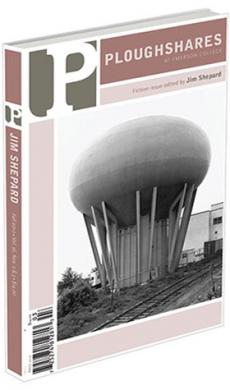Review: The Ticking Is the Bomb
Nick Flynn’s sequel to the PEN prize–winning Another Bullshit Night in Suck City is a seriously absorbing instance of the Poet’s Memoir. (You know that a literary genre has reached maturity when it develops subgenres.) With this book, Flynn arrives where Dante stood as The Divine Comedy began—lost in midlife “alone in a dark wood.” The darkness he confronts is deepest in the American-made inferno of Abu Ghraib in Iraq, which he will bear witness to via the victims’ testimony. But it’s also the shadows over his personal life: the family inheritance of hard living medicated by addiction, the mother dead by suicide, and the alcoholic father fading into dementia. About the confusions of this time Flynn is ruefully candid. So yes, he spent a year “in love with two women, honest with neither,” and yes, he was once photographed shaking hands at an awards ceremony with an apologist for torture. All the more are we compelled to follow as he loses and finds a purgatorial way forward, tracing it with passionate attentiveness.
Poetry first opened up a way to tell the truth of his own history; and Flynn’s work in memoir is still driven by the longing to be undeceived—to know. Initially, he investigated the facts of his absent father’s life. But when the old man appears in this book, it’s on a downward slide to the nursing home, where Ativan replaces alcohol and he’s finally harmless, though with a touch of paranoia: “I have to talk to you, he says—they’re treating me like I’m a millionaire, and I got no money.” Flynn’s mother is another kind of presence, forever putting an unfinished question to him with the words of her suicide note: I don’t know why I chose today to begin. To know himself as separate from his ghostly mother is the harder task.
After the shock of those notorious photographs of U.S. soldiers torturing prisoners in Iraq breaks in the media, Flynn finds a way to accompany the lawyer who’s recording interviews with ex-detainees of Abu Ghraib, on the neutral ground of Istanbul. He spends the most time with a man he calls Amir, publicly defined as the prisoner dragged naked on a leash. By giving us an individual sense of this man now clothed, the former dealer in air conditioners, though he trembles involuntarily when shown those photos, Flynn rebuilds his presence for us as a person complete and undeniable. This is the writer’s redemptive work, what’s available to him in the face of his nation’s enormous violence.
In The Ticking Is the Bomb, Flynn tracks restlessly through time and space, intercutting pungent images from memory or news flashes, blunt political critique, dreamlike reflection, and almost always accompanied on the path, since this is a writer with a real genius for friendship. The book is held together by the force of just one continuous thread: the pregnancy of Flynn’s partner, named as Inez, and the birth of his daughter Lulu, which seems finally to release him from his own parents’ history. Late in this book, a friend asks about the stress of his working on “the book about Lulu and torture”—two words that shouldn’t ever belong in the same sentence. The work of keeping those two terms apart goes on: holding a child safe from the world’s brutalities, and safe from a parent’s damages.

